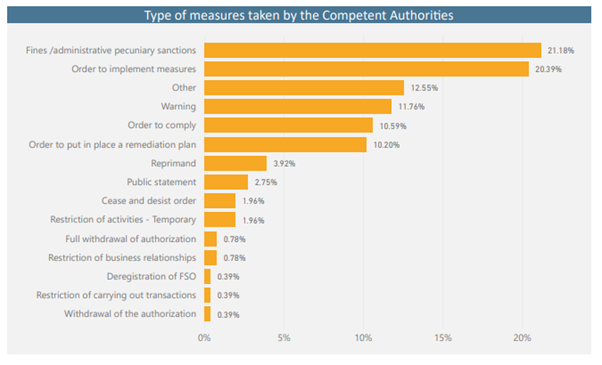Competent authorities that are legally required to report to EuReCA include not only AML/CFT authorities but also prudential authorities, resolution authorities, deposit guarantee schemes, conduct of business authorities and payments institutions authorities. In return, these authorities can obtain data from EuReCA by submitting ‘reasoned requests’ to inform their supervisory activities. The EBA also shares information from EuReCA with competent authorities, as necessary.
By 1 December 2022, EuReCA had received 303 submissions from competent authorities. The serious deficiencies, or ‘material weaknesses’, reported by competent authorities are mainly about credit and payment institutions, but reports were submitted in respect of financial institutions in all sectors.


